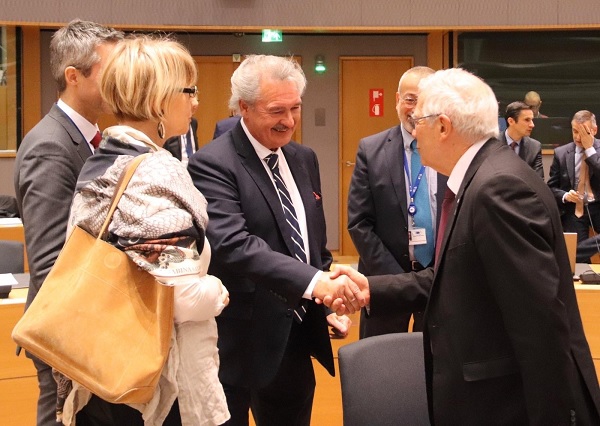 (L-R): Minister Jean Asselborn; EU High Representative, Josep Borrell Fontelles;
Credit: MAEE
(L-R): Minister Jean Asselborn; EU High Representative, Josep Borrell Fontelles;
Credit: MAEE
The meeting allowed ministers to review pressing issues on the international agenda, most notably the situation in Libya, in the presence of the Special Representative of the United Nations Secretary-General for Libya, Ghassan Salamé. During his speech, Minister Asselborn thanked Ghassan Salamé for his tireless mediation efforts and recalled that a lasting political solution in Libya will "not be possible without the participation of the United Nations".
Minister Asselborn expressed concern over recent developments in Iraq. He stressed that the sovereignty and independence of Iraq are essential factors for ensuring the stability of the region, and that "our support for Iraq to stabilise and rebuild the territories liberated from Daesh must continue." Like NATO Secretary General Jens Stoltenberg, who participated in this part of the meeting, Jean Asselborn insisted on the need to continue the Atlantic Security Forces training mission implemented by the Atlantic Alliance and the struggle of the world coalition against Daesh.
"The European commitment to the nuclear agreement obviously depends on the Iranian authorities' full respect for this agreement," said Jean Asselborn. He reiterated that the European Union is committed to this agreement, which allows for oversight of Iran’s activities by the International Atomic Energy Agency.








